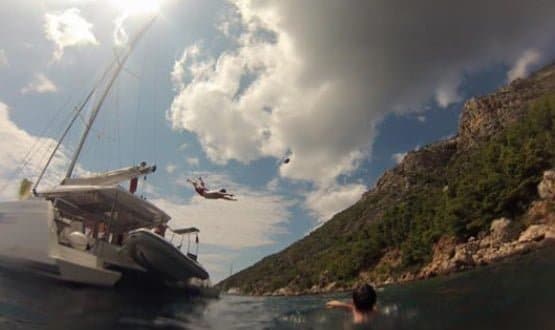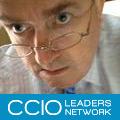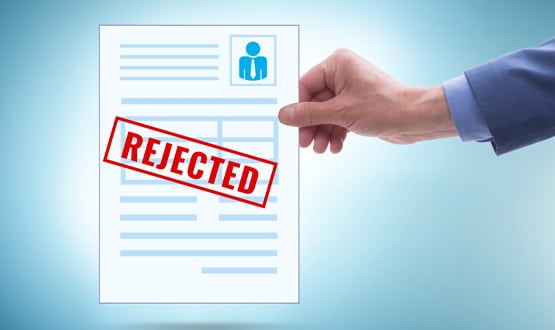Joe’s view of choice
- 14 September 2015

I admit. It’s a first world problem. My catamaran had no wi-fi.
We were told specifically that there would be a wi-fi connection on the boat when we picked it up from Split, Croatia. We needed wi-fi desperately.
We would have to get very stroppy and complain until something was done about it. Really? Just a few miles away drowned refugee children were being washed ashore and we were going to get arsey about not having the promised wi-fi on the brand new, 40 foot, six bedroom, three fridge, Nautitech 40 we had rented for a celebratory family holiday?
Well actually, yes we were. I wanted what I’d paid for and was promised.
Med schools and app stores
Context. The celebration was to be threefold, if our summer worked out as we dreamed. Firstly, Emily, the eldest, had successfully gained entry to medical school as a postgraduate and would start in a few weeks.
Secondly, Fin, the middle one, a design engineering graduate of Goldsmiths, had just finished his Masters in computer science at Newcastle University. He was looking to join the world of work as a software developer and hadjust had his first app published in the iTunes app store.
He could actually win the race to be the first of the kids off the payroll. Thirdly, Jake (pictured ,airborne, working on his rugby skills), the youngest had been accepted at medical school as well, as long as he got his 3 As at A level.
Naturally, we decided not to be abroad on A level results day, just in case Jake missed out with his grades and we had to enter the UCAS clearing process to scramble into a different medical school or course.
However, the day after results day we were due to fly to Croatia and so, just in case of any complications, we insisted on a wi-fi equipped boat.
Now Jake, when aged 16, decided to do Physics, Chemistry and English Literature at A level. I advised against English on the grounds that the exam is essay based and therefore massively subjective. But hey, you know what they say: “16? Leave home now while you still know everything.”
Results day. Two As in science and a B in English. No news on the UCAS site and telephone lines to the university admissions office are jammed all day. And the same the next day.
Jake’s future is in limbo. We organise a re-mark of his English paper with the help of his school. We fly to Croatia and pick up the boat. Well, we had paid all that money and we had wi-fi, right?
No wi-fi. Thunder and lightning. The coldest, wettest August weather in Croatia for 40 years.
Med schools and stethoscopes
The poor kid did his best to join in with the “holiday fun” for the five days we waited in limbo, but was finally put out of his misery by a phone call by the marvelous Mr Anderson, head of year.
He phoned to inform Jake that his English paper had indeed been upgraded to an A and he will go to medical school after all.
Jakey could finally relax and consider the big question: should he play rugby for the medics or try for the university team?
Finally, we celebrated as we’d hoped to that evening in a honeysuckle-scented, rooftop restaurant in the beautiful resort of Hvar.
Sipping the excellent local wine I allowed myself a moment of self congratulation; first world whinger or not, I couldn’t be that bad if my children share my passions – healthcare and IT.
My mind went back to the stethoscope I bought myself with my first month’s wages as a doctor. As a student, I had used whatever old NHS-provided stethoscope was lying around.
But I coveted the ultimate medical status symbol. The ‘Littman Cardiology’ stethoscope was a thing of beauty; panther black, heavy in the hand, thick, shiny – like a two-headed, German-engineered eel.
The sound quality was stunning. It cost me three weeks’ wages including the cost of having my name engraved on it (you can’t even trust a doctor around something that beautiful).
Nowadays, of course, you can go on line and read reviews of stethoscopes. It warmed my heart to see my Littman Cardiology is still rated the best. Admittedly, the current model is described as a Mark III, but looks identical to my 30 year old one.
Med schools and EPRs
I wonder if my medical student children will be using any old NHS-provided stethoscope that’s lying around until they can buy the best with their own money? Probably.
I wonder if they’ll invest that first month’s salary in buying the best equipment they can get to do a better job for their patients? I hope so.
I wonder if my medical student children will be using any old NHS-provided electronic patient record system when they qualify. Or whether the market will be sufficiently open, interoperable, and mature to allow the end user to pick their system of their choice at the price they are prepared to pay.
Milton Friedman, Margaret Thatcher’s favourite economist, said many things I disagree with. But his bleak assessment of how people behave around money rings sadly true.
He said there are four ways to spend your money:
1) Your own money on yourself
2) Your own money on someone else
3) Someone else’s money on yourself
4) Someone else’s money on someone else.
Friedman said that the value obtained deteriorates as you move down the four options with “someone else’s money on someone else” being the worst of all worlds. Option four describes National Programme for IT secondary care systems to a “T”.
First interoperability, then choice
There is a debate running on the CCIO discussion forum at the moment about the greatest achievements of NHS IT. GP IT systems (particularly Emis and SystemOne) and digital imaging (picture archiving and communications systems) are the front runners.
What do they have in common? Clinicians were offered real choices and had a large role in decision making; which was not the case in other parts of the national programme. So clinical freedom of choice equates with health IT project success.
So, can we give the IT budget to individual clinicians to spend on their own systems and therefore get better value and decision making? No. Not yet. The interoperability is missing.
However, if we stick to the principles in the ‘Newcastle Declaration’ then maybe one day individual clinicians will be able to buy their own system of choice for transacting their business with the NHS and drive the improvement of systems through competition.
Mind you, the GP system market is beginning to look a little thin on choice. Maybe the NHS should be looking to bring in a third player, maybe an open source player? You pays your money and you takes your choice.

 |
Joe McDonaldJoe McDonald is a practising NHS consultant psychiatrist. Over the past five years he has been an NHS trust medical director and national clinical lead for IT at NHS Connecting for Health – a stint that included 18 months as medical director of the Lorenzo delivery team! His experiences in the National Programme for IT in the NHS have left him with a passion for usability and "end user knowledge networks.” He is the founding chairman of the National Mental Health Informatics Network. Motto: we don't get fooled again. Follow him on twitter @CompareSoftware |
 |




